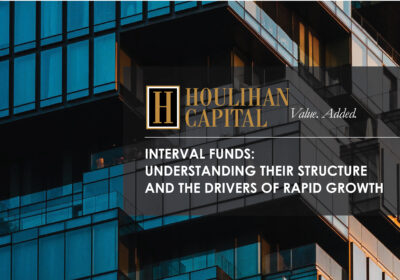Introduction
In today's complex deal environment, boards and their advisors face increasingly nuanced decisions regarding whether an independent fairness opinion strengthens or actually complicates the transaction process. Market volatility, regulatory scrutiny, and evolving fiduciary standards have shifted the cost-benefit calculation around fairness opinions from a compliance exercise to a critical strategic governance decision.
At Houlihan Capital, we have navigated these evolving dynamics in more than 150 fairness opinion engagements across various market cycles, regulatory changes, and transaction structures. Our experience reveals consistent patterns in the circumstances where these opinions add genuine protective value versus those where they become a burden to the transaction process. The following framework distills our insights, built over decades of experience, for boards and legal counsel to consider when evaluating whether or not to obtain a fairness opinion.
The Strategic Decision Matrix
The fairness opinion decision centers on balancing legal protection and stakeholder confidence with process efficiency. Recent market developments have heightened several risk factors that tip this calculation:
Governance Complexity Indicators
Based on our experience, certain governance dynamics consistently create pressure for independent validation:
- Special committee dynamics: Special committees often struggle when independent directors lack transaction experience or face compressed timelines, making objective, independent analytical support critical
- Board composition issues: Situations involving conflicted directors, recent management turnover, or ongoing governance disputes often require additional process protection
- Shareholder base scrutiny: Transactions with activist involvement, high institutional concentration, or vocal investors benefit from third-party validation
Transaction Structure Red Flags
We’ve seen our fair share of challenging transactions over the years. Most often, these transactions suffer from one or more of the following patterns:
- Related party elements: Management participation, controlling shareholder involvement, or cross-ownership structures create inherent conflicts
- Timing pressures: Compressed deal schedules, market window considerations, or financing contingencies often intensify post-closing scrutiny
- Valuation complexity: Transactions involving multiple business segments, recent restructuring, or limited comparable data consistently benefit from detailed fairness analysis
Market Context Factors
External factors can also lead to challenging transaction dynamics.
- Regulatory environment: Enhanced SEC scrutiny, state law developments, or industry-specific oversight
- Litigation trends: Recent precedents in similar transactions or company-specific legal history
- Economic uncertainty: Market volatility affecting valuation ranges or financing availability
Recent Trends in Fairness Opinions
Aside from deal-specific challenges, recent macro trends have heightened the need for fairness opinions.
- Increased judicial scrutiny of board processes has elevated the importance of demonstrable independence and thorough analysis. Courts are examining not just whether an opinion was obtained, but how it was integrated into board decision-making.
- Activist investor sophistication in challenging deal terms has raised the bar for valuation support and process documentation. Recent engagements show activists increasingly focusing on methodology and independence standards.
- Regulatory evolution continues to refine disclosure obligations and fiduciary standards, particularly in complex transaction structures. Our work with regulatory counsel has revealed shifting expectations around process transparency and analytical depth.
Decision Framework Application
The decision of whether to obtain a fairness opinion should consider:
- Risk Assessment: What governance, structural, and market factors create potential challenges?
- Process Integration: How can independent analysis strengthen rather than complicate deal execution?
- Stakeholder Management: What level of validation do key constituencies require?
- Cost-Benefit Analysis: Do the protective benefits justify the process investment?
Process Design Considerations
Once the decision to obtain a fairness opinion has been made, it is imperative to structure the engagement in a manner that does not undermine the protective value of the opinion.
- Scope and Timing Decisions: Early engagement allows fairness opinion providers to advise on deal structure and documentation, while late-stage involvement may limit analytical depth and strategic input.
- Integration with Legal Strategy: A fairness opinion provider should coordinate closely with legal counsel on disclosure strategy, board process design, and potential areas of challenge.
- Independence and Credibility Standards: A high caliber fairness opinion provider brings both analytical rigor and a strong defense against litigation, particularly in transactions likely to face post-closing scrutiny.
Why Houlihan Capital?
Our approach differs in several key ways:
Early Strategic Integration: We are able to engage with legal counsel and boards during deal structuring, not just at the validation stage, helping design processes that withstand scrutiny.
Litigation-Tested Methodologies: Our analysis anticipates the challenges and questions that arise in post-deal disputes, building defensibility from the ground up.
Market Intelligence: Deep experience across transaction types and market cycles informs our assessment of what courts, regulators, and sophisticated investors expect.
Process Flexibility: We adapt our engagement model to each transaction's specific governance needs and risk profile.
Next Steps
Deeper analysis: Our Fairness Compendium provides detailed case law analysis showing how courts evaluate board processes and independent financial analysis.
Strategic consultation: Schedule a confidential discussion about how fairness opinion considerations apply to your specific transaction context.
Continued learning: Explore our strategic advisory insights on transaction structuring and governance best practices.
Conclusion
Fairness opinions have evolved from a compliance exercise to a strategic governance tool. In today's market, the most valuable opinions are those integrated early into transaction planning, designed to strengthen board processes, and crafted to withstand sophisticated scrutiny.
The decision framework outlined here helps boards and their advisors make informed choices about when and how independent financial analysis adds value to complex transactions.
For more information or questions related to Fairness Opinions, please contact:

Andy Smith, CPA/ABV
President
asmith@houlihancapital.com



